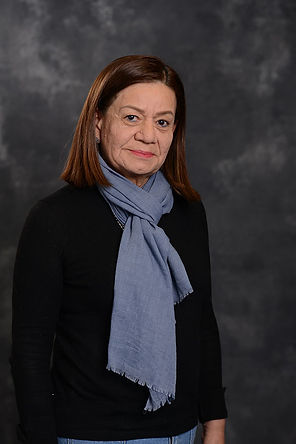

GLOBE otorga insignias de reconocimiento a proyectos de estudiantes del Colegio Rochester
Por Matthew Reis Recientemente, varios estudiantes recibieron importantes honores y reconocimientos por su participación en el Proyecto...


En el Colegio Rochester entendemos que educar es un proceso compartido entre la escuela y la familia. Por eso, la Escuela de Padres es un espacio para fortalecer vínculos, acompañar la crianza y crecer juntos con propósito. A través de talleres, encuentros y reflexiones, invitamos a madres, padres y cuidadores a participar activamente en la formación de sus hijos, comprendiendo y viviendo el enfoque del colegio. Esta cercanía construye confianza, sentido de pertenencia y fidelización desde la experiencia vivida, no solo desde el conocimiento. Queremos que cada familia se sienta parte de una comunidad que educa con amor, coherencia y visión transformadora.

El programa de Crianza Inspiradora y Feliz tiene como propósito principal que los padres puedan usar la Teoría de la Elección como base de la crianza de sus hijos y así alinearse con el proyecto educativo.
La metodología del programa esta basada en tres talleres presenciales de 5 horas cada uno. En los talleres se practican juegos de roles con estudio de casos de crianza de acuerdo con la edad de los hijos. Igualmente con base en lecturas se aprenden herramientas útiles para lograr acuerdos familiares sobre las reglas y las relaciones respetuosas y sin coerción. Desarrollando las habilidades para educar en un ambiente de confianza, respeto y responsabilidad individual y familiar.
Es prerequisito asistir al Nivel 1 para continuar con el nivel 2 y terminar con el nivel 3. Estos talleres se ofrecen a lo largo del año escolar en fechas que encuentran en el calendario de Alma y se pueden inscribir gratuitamente.
The themes that are developed at this level are the basis of the Theory of Choice: Basic Needs, World of Quality and Total Behavior, to reach the effective application of what I need, what I want and what I do. Likewise, the way to establish negotiable and non-negotiable norms and rules in family meetings for the construction of a family constitution is addressed.
What do I have control over in raising my children?
How does my mind and my child's mind work according to Choice Theory?
How can I promote the mental health and happiness of my child and myself?
How to lead family meetings?
How to create a family constitution?
The topics that are developed at this level revolve around how to resolve conflicts using the conciliation model in Choice Theory, studying the 4 ways in which we relate and attitudes toward conflict.
What is the use of knowing about Choice Theory in parenting?
What are my attitudes towards family conflict?
What are the 4 ways we relate as a family?
How do I reconcile with my children without losing power as parents?
The topics at this level are the application of Choice Theory in an environment of trust in the family. Tools to reach agreements and shared images such as the DAEP, the Solution Circle, and Role Play are practiced through the use of constructive habits.
Promote the application of Choice Theory in the family
How to create a warm environment based on trust?
What is a conflict according to Choice Theory?
How to solve family conflicts using Choice Theory?
What new tools can I use to resolve a conflict?
Sonia Muñoz Olea
She currently works as a Glasser Quality Consultant at Rochester College and a Basic Course Teacher in Choice Theory and its applications at William Glasser International. She is the President of the Elegir Foundation, created in 2001, to promote the Theory of Choice and its applications in leadership, organizational development, mental health, personal growth, quality education and the family as an inspiring nucleus.

Mónica Bernal Silva
Mónica currently directs the Professional Development program at Rochester School, focusing her role on achieving various forms of training for teachers, associated services personnel and parents. She is certified in Choice Theory, Management by Leadership and Reality Therapy (2004) and certified as a Master in Choice Theory (2013). He has a Master in Pedagogy (2011) and a Master in Family Counseling (2021). With his management he inspires and supports fundamental changes in the personal, professional and family development of the Rochestrian community.

Choice Theory: it is an explanation of the functioning of the mind and brain as an internal control system for our behavior; of why and how we behave. It explains the individual's internal choice process in any situation, based on the desired personal images that seek to satisfy the 5 basic needs of survival, love and belonging, power and recognition, freedom and fun.
Counseling: is the method of counseling and therapy based on Choice Theory that Dr. William Glasser initiated since 1965, which helps people be effectively in control of their lives and maintain their mental health.
Management by leadership: it is the systemic application of the Theory of Choice in the business, family and educational organization, which seeks to replace authoritarian and coercive relationships with a satisfactory work and learning system of basic needs.
Quality Schools based on the Theory of Choice: it is the systemic application of the Theory of Choice, so that the curriculum is useful, well-being and mental health are achieved. The following quality conditions: an environment of trust and cooperation, usefulness perceived by all, excellence, self-evaluation, evident continuous improvement and well-being are essential and evident in schools based on the Theory of Choice.
Expand your capacity for direction, guidance and leadership as a family
Build responsible and successful family environments without coercion
Plan family gatherings for success
Usar los conceptos básicos de Teoría de la Elección en la crianza diaria
Give useful feedback to children, partners or co-workers
Work and learn as a family team
Comprender el comportamiento propio y el de nuestros hijos